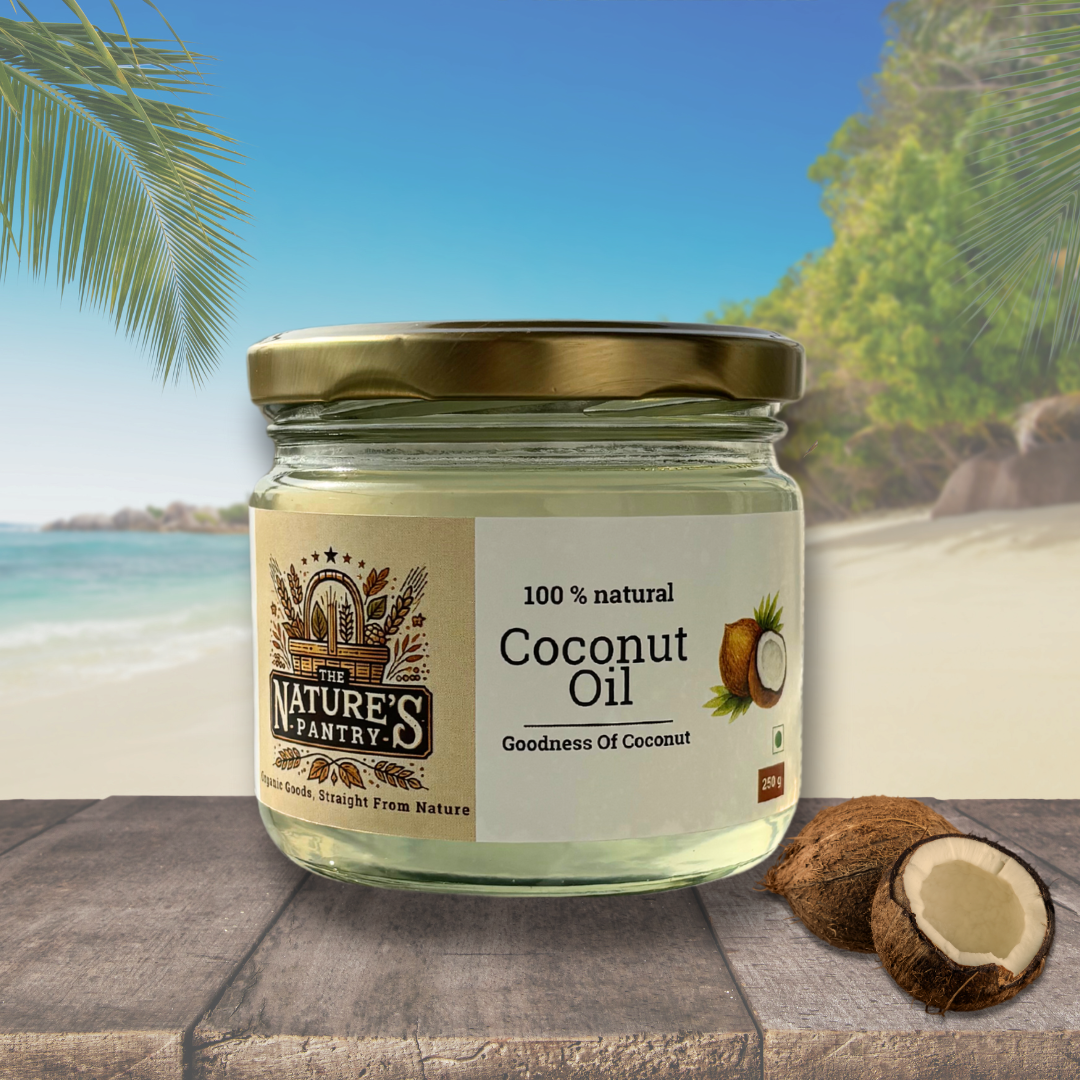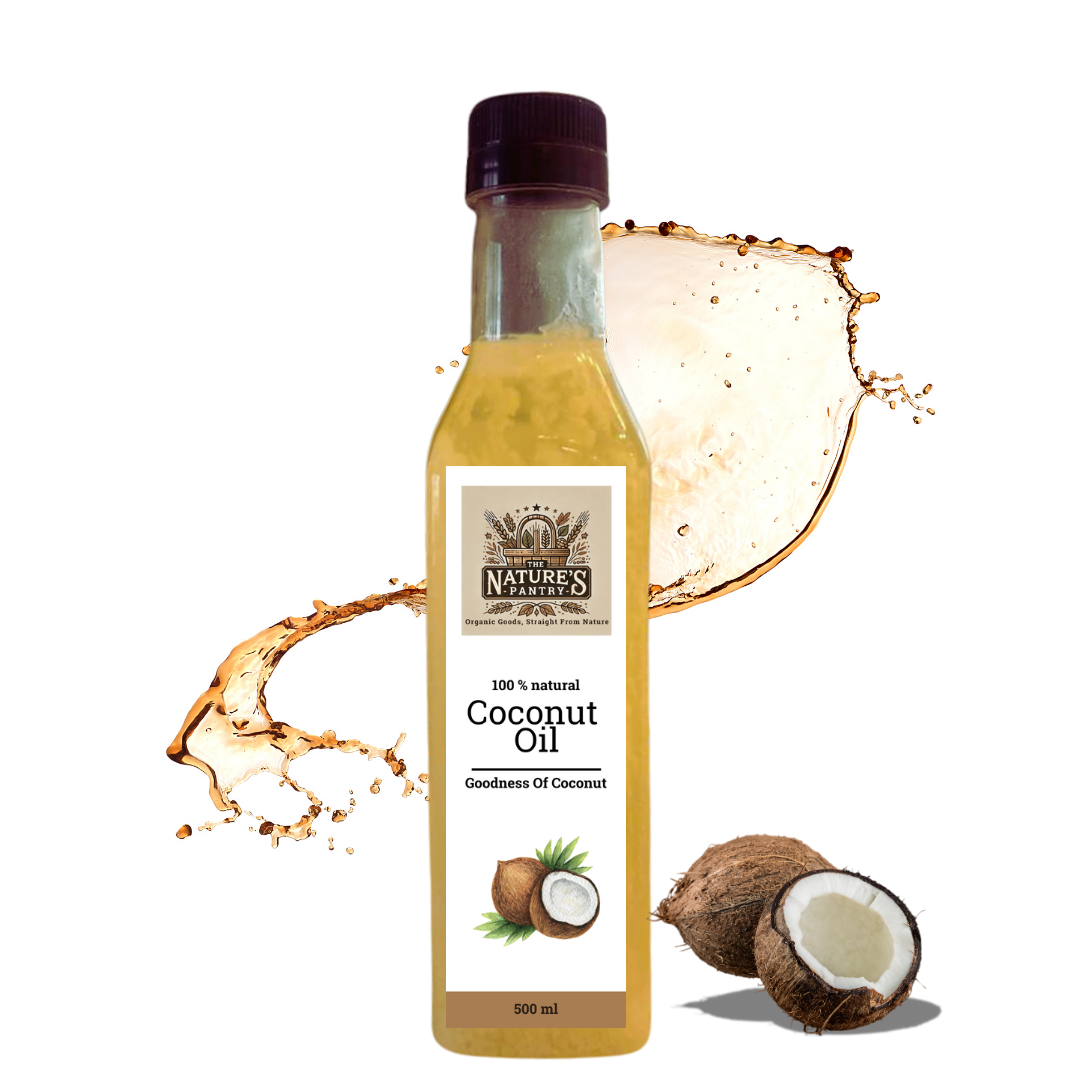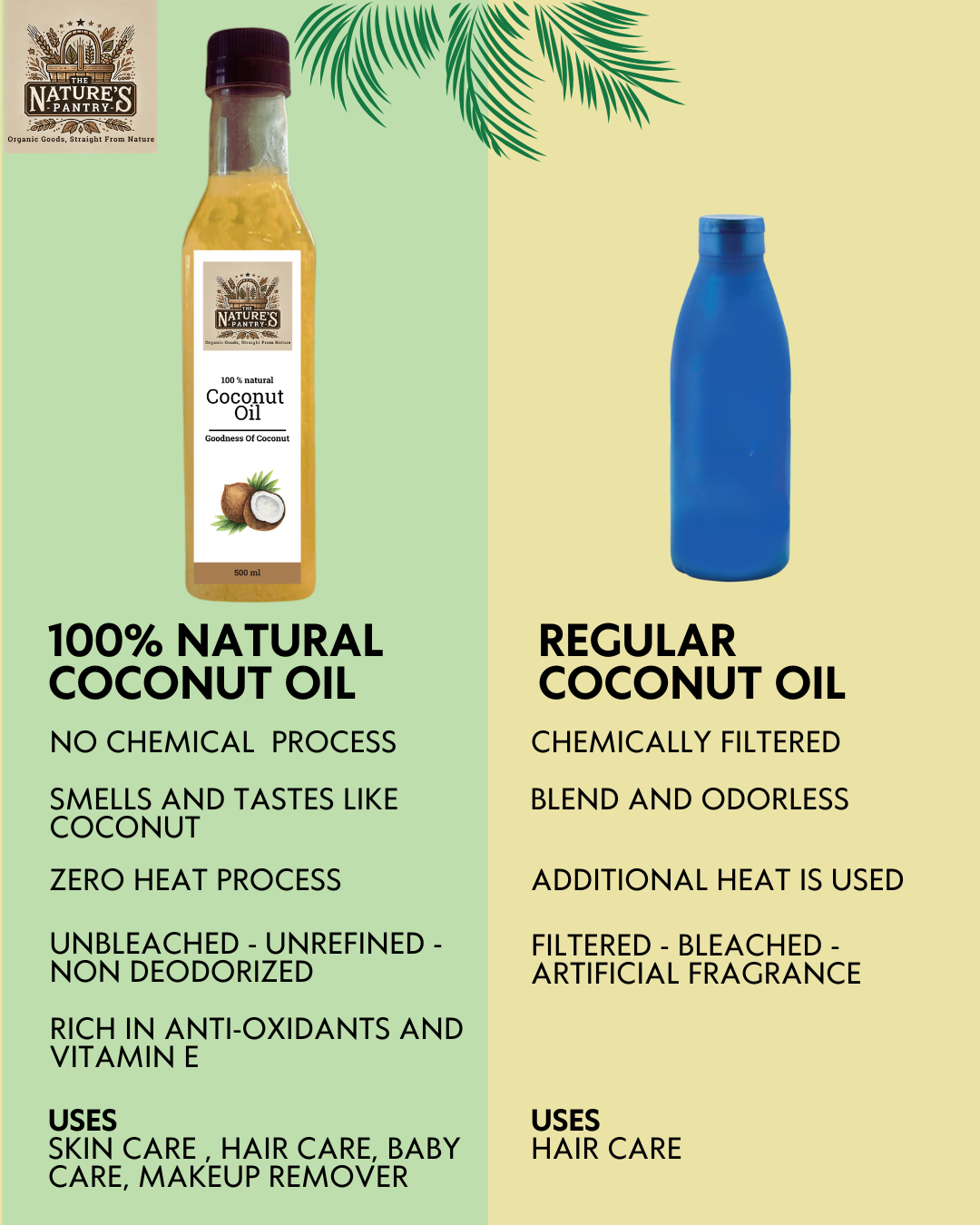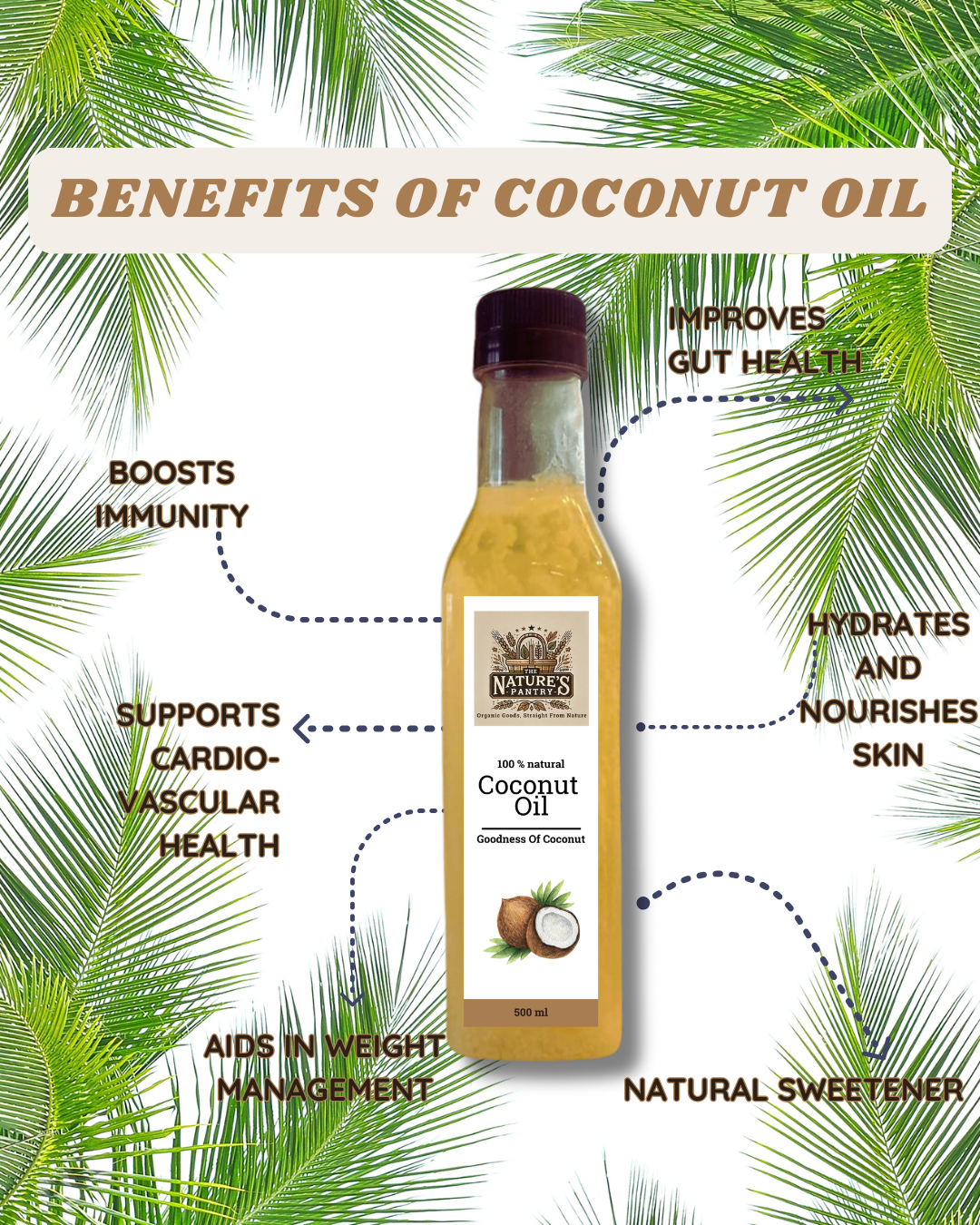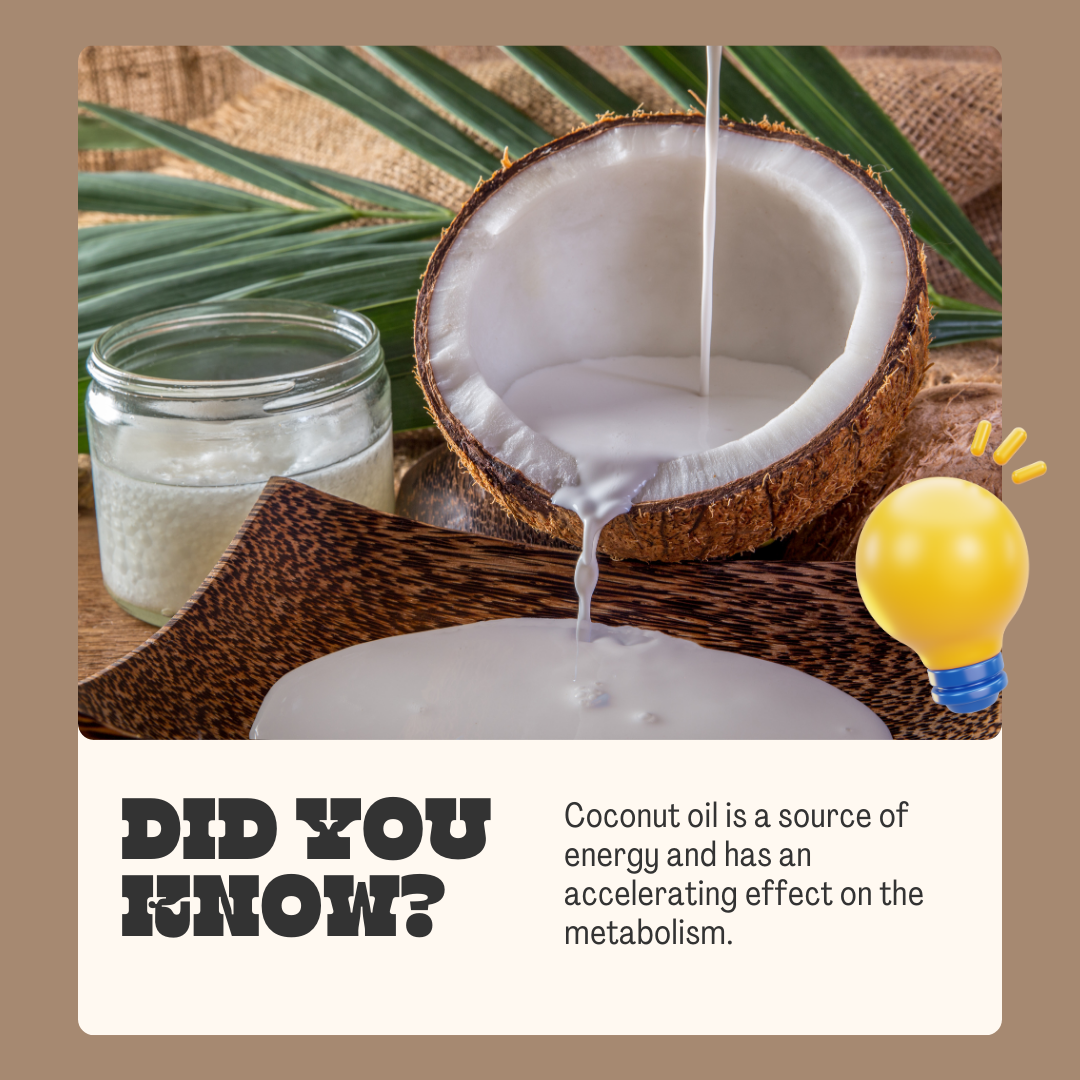Does Coconut Oil Darken the Skin? Myths & Facts Unveiled
Share
 Coconut oil is one of the most versatile natural products used for skincare, hair care, and even cooking. However, a common question people ask is: Does coconut oil darken the skin? In this blog post, we will explore the myths and facts surrounding coconut oil and its effects on skin tone.
Coconut oil is one of the most versatile natural products used for skincare, hair care, and even cooking. However, a common question people ask is: Does coconut oil darken the skin? In this blog post, we will explore the myths and facts surrounding coconut oil and its effects on skin tone.
Understanding Coconut Oil and Skin Tone
Coconut oil is packed with beneficial properties, including:
- Moisturizing: It hydrates and nourishes the skin deeply.
- Healing: It contains antioxidants and fatty acids that help repair skin damage.
- Anti-inflammatory: It soothes irritated skin and reduces redness.
- Antibacterial: Helps in preventing acne and skin infections.
While coconut oil has many benefits, some people believe that it may cause skin darkening. Let’s separate the myths from the facts.
Does Coconut Oil Darken the Skin? The Truth
1. Coconut Oil Does Not Contain Melanin
Melanin is the pigment responsible for skin color. Since coconut oil does not contain melanin or stimulate its production, it does not inherently darken the skin.
2. Coconut Oil Can Enhance Tanning Under the Sun
Coconut oil has a very low SPF (around 4-5), meaning it does not provide adequate sun protection. When applied before sun exposure, it may increase tanning because it allows more UV rays to penetrate the skin. However, this is not the same as darkening the skin permanently.
3. Coconut Oil Can Improve Skin Texture and Brightness
Many people use coconut oil to lighten dark spots and even out skin tone. It contains Vitamin E and antioxidants that can help reduce pigmentation and improve overall skin health.
4. Skin Darkening Due to Clogged Pores
For people with oily or acne-prone skin, coconut oil can sometimes clog pores, leading to breakouts and post-inflammatory hyperpigmentation (dark spots left by acne). If you have acne-prone skin, it is better to use lightweight alternatives like jojoba oil or rosehip oil.
How to Use Coconut Oil for Glowing Skin
If you want to incorporate coconut oil into your skincare routine without worrying about darkening your skin, here are some tips:
1. Use It as a Moisturizer at Night
Applying coconut oil at night helps the skin absorb its nutrients without the risk of sun exposure.
2. Mix It With Natural Brightening Agents
- Lemon juice: Helps in lightening dark spots.
- Turmeric: Reduces pigmentation and gives a natural glow.
- Aloe vera: Soothes the skin and evens out the complexion.
3. Apply Sunscreen If Using During the Day
If you plan to use coconut oil in the daytime, always layer it with a broad-spectrum sunscreen to prevent sun damage and tanning.
Final Verdict: Should You Use Coconut Oil on Your Skin?
Coconut oil does not darken the skin on its own. However, if used before sun exposure, it may lead to tanning due to its low SPF. On the other hand, it can help brighten the skin, reduce pigmentation, and deeply hydrate when used correctly.
If you are concerned about potential skin darkening, make sure to:
- Use pure, organic coconut oil.
- Apply it at night or mix it with skin-brightening ingredients.
- Wear sunscreen during the day if using coconut oil in your routine.
So, go ahead and enjoy the many benefits of coconut oil without worrying about skin darkening! Have you tried using coconut oil on your skin? Share your experience in the comments below! 😊


